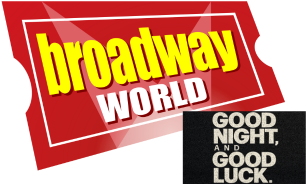BWW Preview: Launch Pad and Idris Goodwin Bring the FUNK to UCSB
In the 1970s, the downsizing of a factory in a major industrial city leaves hundreds of workers unemployed. What do the denizens of this deindustrialized zone do when faced with a future of uncertainty? In playwright Idris Goodwin's upcoming dramatic workshop with the UCSB Launch Pad Program--a play called, We Want the Funk: A Rustbelt Lullaby on the One--charismatic Chuck (Charles Grant), resolves to trust in the notion that economic depression and cultural oppression can be overcome by creating music. Chuck can't play an instrument, but he devotes his energy to forming a funk band to connect his community to their grander calling. That calling might be a literal ticket out of the slums, if their band hits it big across the nation; but Chuck, who Goodwin describes as a "ghetto spiritual leader," is more interested in the transcendent aspect of music. We Want the Funk examines issues of class, race, and music's role in instigating people to imagine a better future for their community.
Looking to broaden his understanding of culture as it's represented through the lens of music, Goodwin explores the inspiration and impact of hip-hop's precursors. Goodwin consistently incorporates music into the narratives of his plays; other of his works, such as The Realness, Break Beat, or Blackademics, feature rap and hip-hop as a mode of storytelling. Goodwin's plays demonstrate the belief that music can conjure rescue in a variety of unexpected forms. It offers transcendence and catharsis--which Chuck is desperately seeking after being set adrift when the factory shuts down. In place of Goodwin's usual application of rap and hip-hop as a method of narration, We Want the Funk uses funk music in its approach to storytelling and describing the population of the play.
Music in the '50s and early '60s (traditional Motown, for example) was of a lighter, more deferential style that appealed to a broader, more racially diverse audience. Funk, with roots in jazz, R&B, and soul, had a distinct ethnic affiliation. Many children who would eventually grow up to be hip-hop and rap artists were raised on funk, which inevitably affected their worldview and inspired their artistic styles. Even two generations later, much contemporary hip-hop features rhythms and instrumentation resampled from classic funk songs. Having developed a social and political awareness by listening to hip-hop and rap, Goodwin is excited to explore previous generations through their music.
The Launch Pad program at UCSB, run by Risa Brainin, gives playwrights the opportunity to preview their new plays with full cast and production. This is an imperative aspect of the playmaking process, one that allows important discoveries to be made about the production. We Want the Funk is not a musical in the traditional sense, but Goodwin is working with the cast on innovative ways to incorporate music and rhythm. The music is mostly actor driven-heavily based in chants, cadences, and call-and-response. It's a large cast with a full ensemble, which is unusual for Goodwin's typically minimalist pieces. Goodwin likens this stylistic choice to the distinctions between funk and hip-hop. "Hip-hop," Goodwin explains, "could be very minimal. Maybe three people on stage and two turntables. My other plays, the ones that use hip-hop and rap, are like that; they have small casts. But with funk, you'd have a lot of people on stage! So Risa (the director) and I decided that the larger cast and ensemble was appropriate to represent this vibe."
Goodwin laments that a play about politics, class, and power, especially one with such a large cast, may be a difficult sell for many producers, so he's enthusiastic to have the Launch Pad platform to develop this work. We Want the Funk: A Rustbelt Lullaby on the One is an example of the type of play that Santa Barbarians, who represent a theatre-going population largely interested in well-known, previous-generation works, don't often get the chance to experience. This makes the Launch Pad Program especially fundamental: it brings vital, contemporary work to the community. Just as Goodwin gained an understanding of socio-economic and political views by listening to the relevant music of his childhood, so too can we, the audience, find a more comprehensive understanding of this play's struggling population through the music they create.
Playing at UCSB May 19-27, We Want the Funk: A Rustbelt Lullaby on the One is a rhythmic saga featuring Jeff Mills, Jenna Scanlon, Joré Aaron-Broughton, Luis Gomez, Charles Grant, Alexander Hudson, Tonea Lolin, Maddie Martin, Peerada Meemalayath, Truly Polite, Tyler Reinhold, Rigoberto Sanchez, Kody Siemensma, Andre Taylor, Chelsea Williams, and Verenice Zuniga. This play is a fresh reconnection with a bygone era, one sure to evoke a higher level of understanding of a particular populace.
We Want the Funk: A Rustbelt Lullaby on the One!
Thursday, May 19, 2016 - 7:30pm to Saturday, May 21, 2016 - 7:30pm
Wednesday, May 25, 2016 - 7:30pm to Friday, May 27, 2016 - 7:30pm
Sunday, May 22, 2016 - 2:00pm
Comments

Videos
